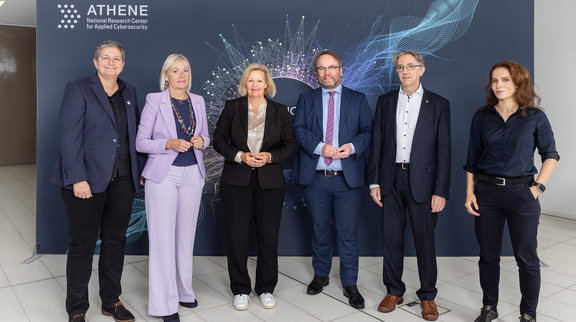News

New center for applied cyber security research in Heilbronn
On 1 January 2025, Fraunhofer, in cooperation with the Dieter Schwarz Foundation, will open a total of eight research and innovation centers on the Heilbronn education campus. Among them is the Fraunhofer SIT and thus also ATHENE: We are responsible for the new Fraunhofer Heilbronn Research and Innovation Center for Cybersecurity as one of the eight new research and innovation centers and as a new research department within Fraunhofer SIT.
read more
ATHENE researchers support Hessian LKA with new biometric methods
The digital revolution is constantly presenting law enforcement agencies with new challenges - especially in the sensitive area of combating child pornography. A research team led by ATHENE scientist Prof. Christian Rathgeb from Darmstadt University of Applied Sciences has now achieved a major breakthrough: innovative artificial intelligence methods have significantly improved the reliability of biometric facial recognition in children. This development represents an important milestone for the forensic work of the Hessisches Landeskriminalamt (HLKA). The preparatory work for the project was carried out in the ATHENE research area Next Generation Biometrics Systems (NGBS).
read more
FIfF-Weizenbaum Study Prize 2024 for ATHENE team
The "PEASEC" research group at TU Darmstadt, led by ATHENE researcher Prof. Christian Reuter, has been awarded the Weizenbaum Study Prize 2024 twice: Both Dr Thea Riebe and Dr Thomas Reinhold were awarded 1st prize for their dissertations completed in 2022 and 2023 respectively, both of which were supervised by Prof. Christian Reuter.
read more
Federal Minister of the Interior Nancy Faeser visits ATHENE
Together with the Hessian Science Minister Timon Gremmels, the Hessian Digital Minister Prof. Dr Kristina Sinemus and BSI President Claudia Plattner, Federal Minister of the Interior Nancy Faeser visited our centre. The guests gained insights into how the innovative research at ATHENE is helping to improve cyber security in Germany and make the country a leader in this field.
read more
